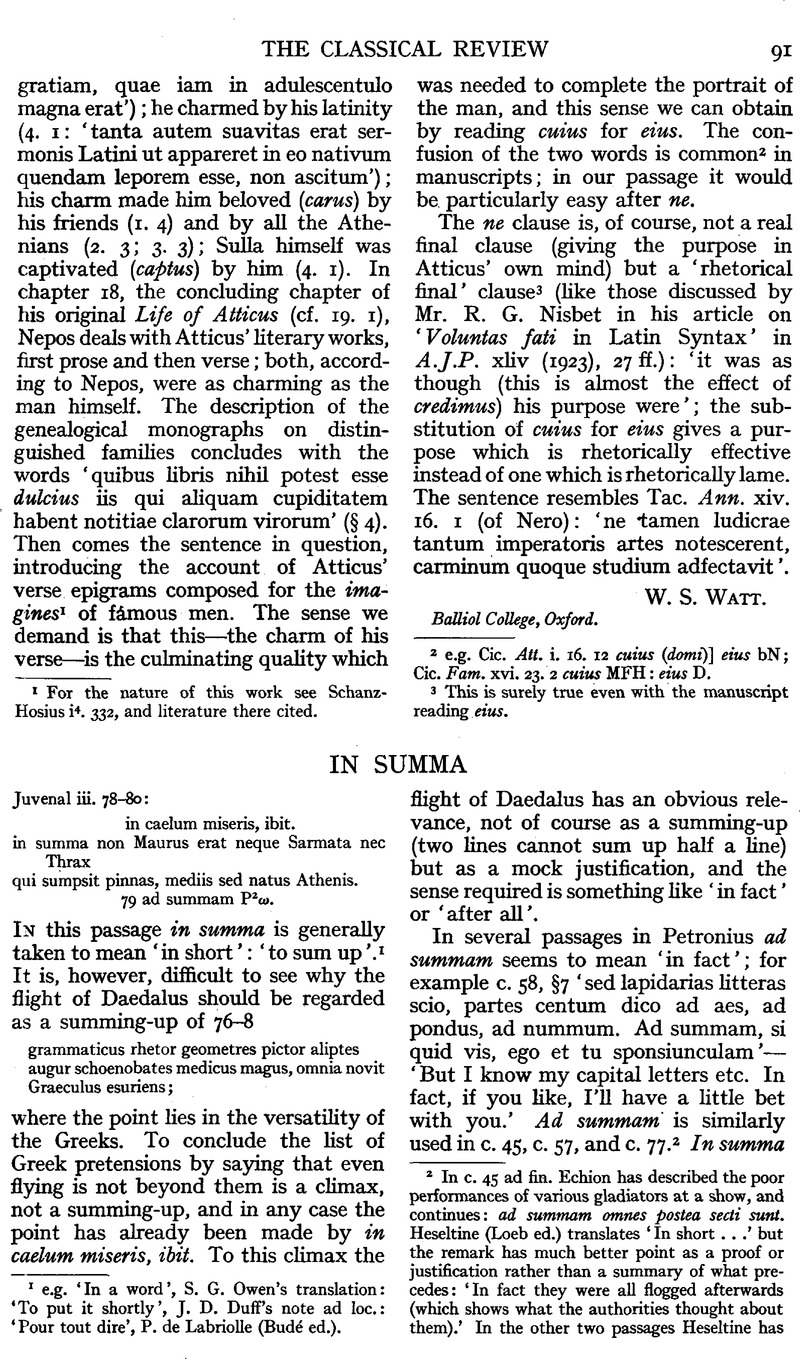No CrossRef data available.
Published online by Cambridge University Press: 27 October 2009

page 91 note 1 e.g. ‘In a word’, S. G. Owen's translation: ‘To put it shortly’, J. D. Duff's note ad loc.: ‘Pour tout dire’, P. de Labriolle (Budé ed.).
page 91 note 2 In c. 45 ad fin. Echion has described the poor performances of various gladiators at a show, and continues: ad summam omnes postea secti sunt. Heseltine (Loeb ed.) translates ‘In short …’ but the remark has much better point as a proof or justification rather than a summary of what precedes: ‘In fact they were all flogged afterwards (which shows what the authorities thought about them).’ In the other two passages Heseltine has ‘in fact’. A. Ernout (Budé ed.) translates ad summam in all three passages by various expressions meaning ‘in short’; in c. 58 he has ‘tiens’.
page 92 note 1 Possibly ad summam, which in various senses occurs ten times in all in the conversation of freedmen in Petronius, was the more colloquial. In Cicero ad summam occurs twice in philosophical works and several times in letters, generally with the sense ‘in short’ and sometimes with the sense ‘in conclusion’ (Alt. x. 4. II). Holden (on Cic. Off. i. 149) remarks ‘Cicero never uses in summa, the phrase employed by Pliny’. He does actually use in summa in a letter (Q.F. ii. 15. 3), but in the middle of a sentence and apparently with the sense ‘in all’.